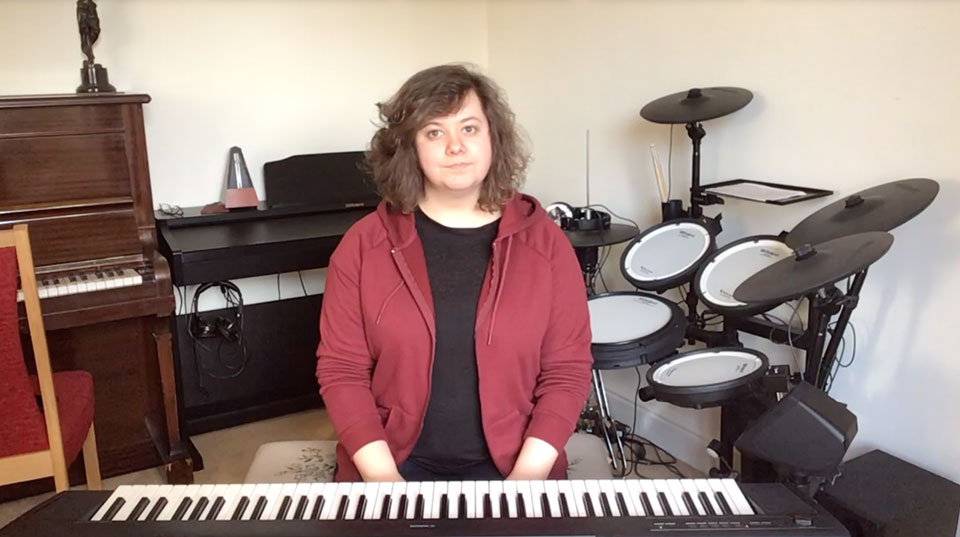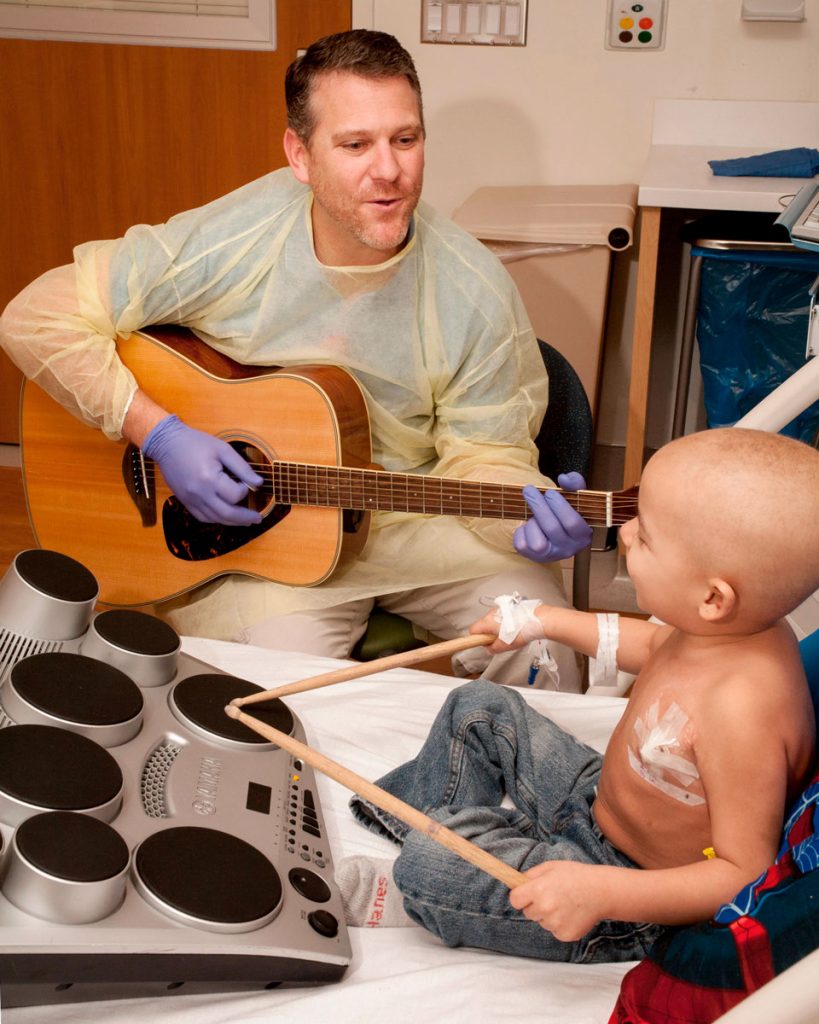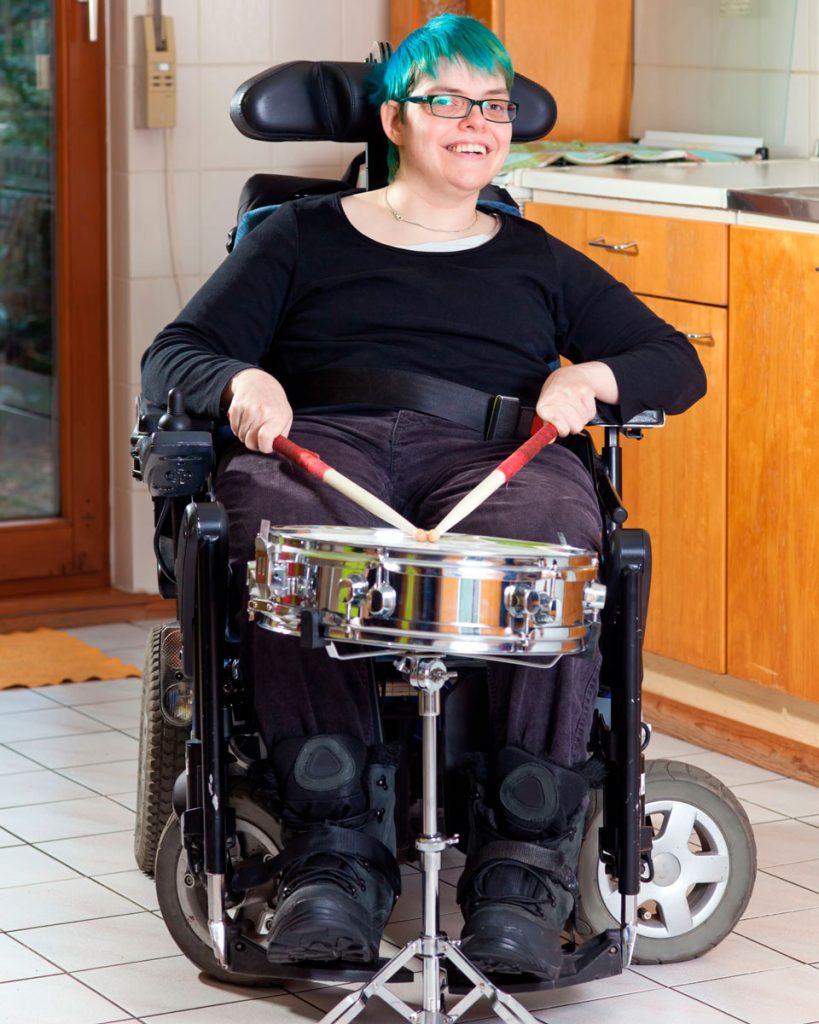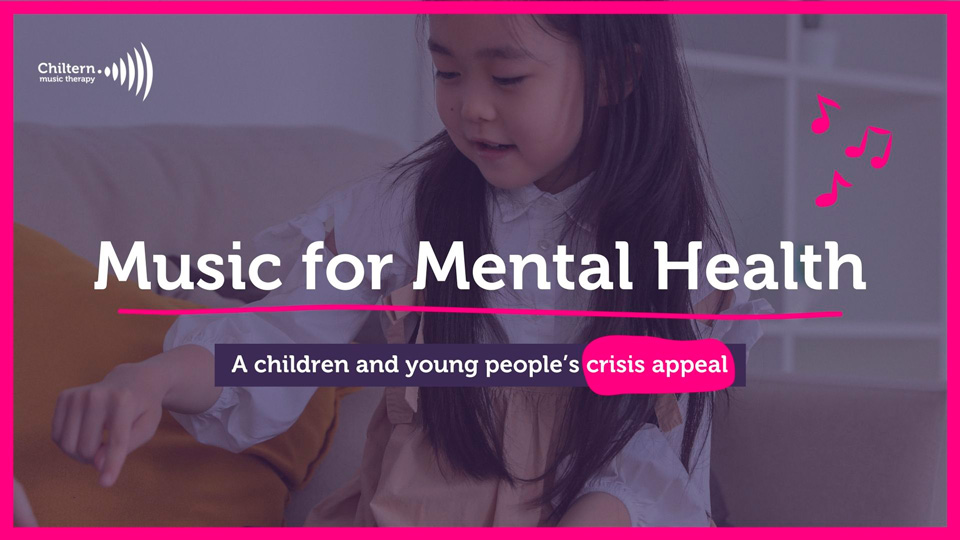Careers in Music – Music Therapist
12th June 2023This is the third of our blogs highlighting various careers in music. This time we chatted with Laura Spencer who is a Music Therapist working for Chiltern Music Therapy – a national supplier of Music Therapy services. Once upon a time Laura completed her school work experience placement at Dawkes so this was a fantastic way to find out what she’s gone on to achieve.
The role of a Music Therapist is a demanding yet rewarding career that provides a fantastic support to a wide variety of people of all ages. Please read on to find out all about the role of Music Therapists…

Q: Can you please explain the main role of a Music Therapist?
A: Music therapists work with people of all ages who have been affected by mental health, illness, injury, or disability, supporting them with their psychological, emotional, cognitive, physical and communicative needs. We utilise the innate qualities of music through shared musical improvisation and interaction to establish a therapeutic relationship with our clients.
By engaging in singing and playing a range of instruments in a wide variety of musical styles, clients are encouraged to explore and be creative, enabling them to express themselves, create their own musical language and connect with their emotions and the world around them. Music listening is also a valuable and widely used approach in therapy. This approach is especially suitable for teenagers and adults who experience mental health problems. Listening to their favourite music, analysing the lyrics, and meaning of songs can be a powerful experience.
Music therapy offers a broad, versatile, and highly tailorable way of working with people and can empower them to reach their potential.

Q: What training/study did you complete to become a Music Therapist?
A: Following my undergraduate degree in Music, I studied for my Masters Degree in Music Therapy at The Guildhall School of Music and Drama. This was a full-time two year course where I received expert tuition to develop my musicianship, knowledge and skills to equip and qualify me to work as a registered music therapist.
Throughout my studies I attended course lectures and seminars designed to build our therapeutic and theoretical knowledge. I learned about psychodynamic approaches to music therapy whilst also working alongside qualified and practicing music therapists with experience in a range of settings. These included health care units, mainstream and special educational needs schools, and care homes to name just a few.
By far one of the most valuable and instructive experiences from the course were my clinical placements. I was supervised by experienced therapists from Chiltern Music Therapy as a student, shadowing them in a few different settings; a school, a care home, and an adult mental health group. I am now a full-time employee of Chiltern Music Therapy and feel very lucky to be running the group that I shadowed my colleague running as a student.
Q: Are there common misconceptions about Music Therapy?
A: One common misconception is that only people who are ‘musical’ can take part in music therapy. There is no requirement to know how to sing or play a musical instrument to join in or benefit from music therapy.
Another misconception is that music therapists are there to entertain people. This does have a place in sessions, for example if a client enjoyed listening to a particular song and the therapist was able to sing it to them. However, mostly music therapists will work with clients to create music together and encourage them to be active participants in sessions where appropriate.
Q: Can you give an example of someone you work with and how it benefits them?
A: Since qualifying as a music therapist in 2019, I have been very lucky to have gained experience working with a wide range of clients and often their families too. I find myself going back through the archives of clients in my head, a lot of whom are treasured in my memories as clients who have impacted me for a variety of reasons. So much so that I am struggling to choose which example to talk about here.
One client who I have worked with for almost two years now is a teenage boy who I see in a Special Educational Needs School. He has a genetic disorder which affects him physically. He uses a wheelchair, and he is severely visually impaired. Despite his disability, he is a positive and determined young man who is full of fun and character. He uses music therapy to process his feelings, thoughts, experiences, and emotions through song.
Each session we talk about what he would like to sing about, and he is always full of ideas. He improvises lyrics off the top of his head as I accompany him on the piano. Often his songs are an outpouring of emotions about things that have happened the week leading up to a session. So far, we have recorded over seventy songs which he has categorised into albums. For him, music therapy offers a safe and creative space for him to express himself.

Q: What were your first musical experiences?
A: I am very fortunate to have a musical family who have always supported me through my musical development. My Nan has always been a shining example of determination and drive when learning an instrument. My earliest memories with her are sitting at the piano with my feet barely hanging off the edge of the stool listening to her play amazing classical pieces. My Pop played an electric organ and there is video footage of me at the age of two grooving along to a demo track.
My Granny was also a fantastic pianist and she loved to hear me play to her all through my childhood and into adulthood. My Dad has had a significant influence in the type of music that I love listening to which he introduced to me from a young age. I’ll never forget long car rides where he would play music by his favourite artists such as Aretha Franklin, Buena Vista Social Club, JJ Cale, Dire Straits, The Staple Singers… I could go on but there were just so many incredible artists who I loved then, and still can’t get enough of!
Q: What’s the most gratifying part of your job?
A: Working as a Music Therapist can be challenging at times, but it is a very rewarding career. We are lucky to have the opportunity to work alongside other health care professionals, teachers, teaching assistants, support workers and families to support our clients to improve their health and wellbeing.
It is so rewarding to support people to meet and surpass their clinical goals. We can provide a space for clients to explore and process their emotions and be expressive and creative in a safe and nurturing session and it is wonderful to witness the difference this can make for people.
Q: If someone is interested in becoming a Music Therapist where can they find more info?
A: Chiltern Music Therapy regularly runs online and face to face workshops to help people find out more about music therapy as a career. More info is available on our training webpage www.chilternmusictherapy.co.uk/training.
Our training coordinator can be contacted at (e) training@chilternmusictherapy.co.uk or (t) 01442 780541.

Help Support Music Therapy Provision
Chiltern Music Therapy work with people in acute, targeted, rehabilitative and continuing and preventative care. They have launched this appeal to raise £50,000 to help provide music therapy to those who need it most between the ages of 0 and 25.
Your donation, no matter how small, will help provide subsidised services for young people who are not usually able to access their services. Visit the appeal page to leave a donation.